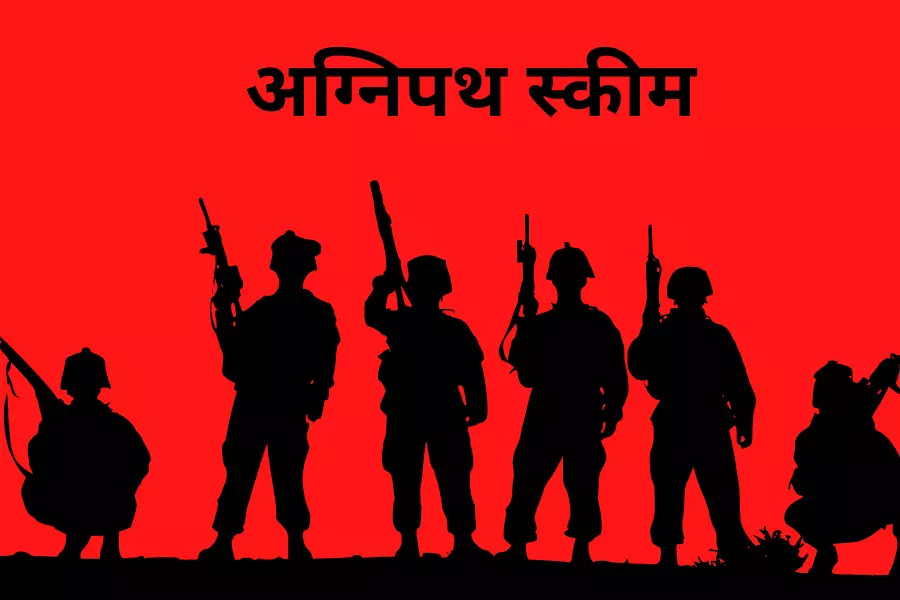With the Agnipath scheme, the Modi government is taking forward the idea of ‘Atmanirbharta’ among youth. Read how:


Agnipath scheme was launched on 14 June and was defined in media as a ‘Pathbreaking recruitment strategy’. However, a certain section of society that is often seen indulging in misinformation led a violent mob against the scheme destroying crores of the worth of government property.
The Modi government’s concept of recruitment encompasses not only recruitment but also making the youth directly responsible for their own safety. Arms storage is lawful in some countries, such as the United States, for the safety of citizens, however, it is not permitted in India. When confronted with a difficult scenario in which he or she is expected to resist, the youth has been docile. Minor occurrences like chain snatching, street fights, and bullying have become prevalent among people who can only defend themselves by being subservient. The arsonists are motivated by all of these activities. This has a social impact because the mindset of being a mafia is more prevalent than that of a responsible citizen.
The Agnipath scheme is path-breaking since it trains our youth to be ‘Atmanirbhar’ in terms of self-defence, community defence, and fighting when necessary, as well as making them financially self-sufficient. It instils in the youth a sense of responsibility for the country and society. The hiring procedure is based on a merit-based selection process that occurs across India. Candidates between the ages of 17 and 21 who want to join the military will be called “Agniveers” and would serve the nation for four years if chosen.
The defence programme is aligned with UGC norms and the National Credit Framework / National Skill Qualification Framework (NSQF) under the National Education Policy 2020, has multiple exit points – an undergraduate certificate after successful completion of the first year, an undergraduate diploma after successful completion of the first and second year courses, and a degree after successful completion of all three year courses.
As IGNOU stated, “Under this programme, 50 per cent of the credits required for a graduate degree will come from the Agniveer’s skill training – both technical and non-technical – while the remaining 50 per cent will come from a basket of courses that cover a wide variety of subjects like languages, Economics, History, Political Science, Public Administration, Sociology, Mathematics, Education, Commerce, Tourism, and so on”.
The program’s framework has been approved by the pertinent regulatory organisations, including the All India Council for Technical Education (AICTE), the National Council for Vocational Education and Training (NCVET), and the University Grants Commission (UGC). IGNOU will issue degrees in accordance with UGC nomenclature (BA; B. Com.; BA (vocational); BA (Tourism Management) and will be recognised for employment and study in India and abroad. The Army, Navy, and Air Force will, however, sign Memorandums of Understanding (MoUs) with IGNOU for the scheme’s implementation.
When a candidate leaves the defence cantonment after four years, he or she will not only have the technical and non-technical abilities and degrees from a national level university but also the financial backing to pursue any profession, including blue-collar work or founding a business. When many of us graduate at the age of 21, the majority of us settle into a job rather than starting a business and employing others. The sole reason is that the idea of a start-up is rarely appreciated by middle-class families.
Meanwhile, the Agnipath programme is making youth ‘Atmanirbhars,’ who don’t have to ponder before pursuing their goals even if it is financial.
DISCLAIMER: The author is solely responsible for the views expressed in this article. The author carries the responsibility for citing and/or licensing of images utilized within the text.
